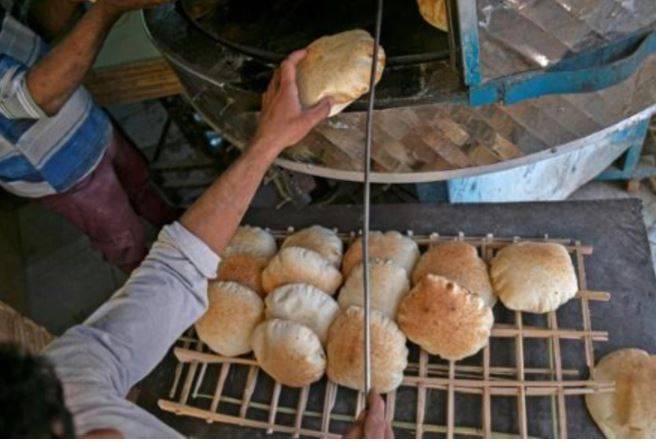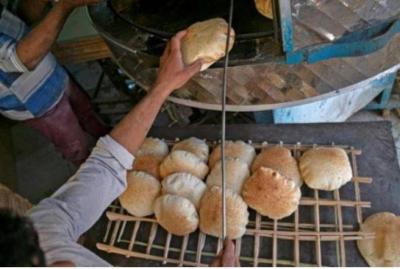Egyptians are preoccupied with a wave of rising food prices sweeping the markets in light of the crisis following the Russian invasion of Ukraine. This has prompted Egyptian President Abdel Fattah el-Sisi to intervene and direct the government to price unsubsidized bread for the first time since he took office.
Shaimaa Mohammed, a housewife, says that the price increase was rapid and sudden; 1,500 Egyptian pounds (approximately $95.4) used to be sufficient to buy her monthly grocery list, but today that amount is not even enough to purchase half of it. The forty-year-old mother of three daughters told AFP, "The situation is insane... It's only been 15 days since I was in the markets buying my needs, and prices were not as inflated as they are today... What happened?"
What happened is the repercussions of the Russian invasion of Ukraine on February 24, which caused a record surge in global food prices, according to the United Nations Food and Agriculture Organization (FAO).
Last week, Egypt's statistics agency announced that the annual inflation rate in Egypt reached 10% in February, the highest since mid-2019, attributing the increase to a 20.1% rise in food and beverage prices, particularly vegetables, fruits, bread, and cereals.
Shaimaa, who lives in an old neighborhood in downtown Cairo, points out that the price of a kilogram of chicken, for example, has risen to 35 pounds ($2.33) from between 20 and 27 pounds at the beginning of this month. She also notes that bread and rice, which are among the most consumed goods by all segments of Egyptians, have also increased in price, with a loaf now costing 1.25 pounds instead of 1 pound, while rice has reached 11 or 12 pounds per kilogram instead of eight pounds.
As Ramadan approaches and Egyptian markets prepare to welcome customers, there are fears that the picture will change this year due to the wave of inflation hitting the Arab country's products. Egyptian Finance Minister Mohamed Maait confirmed earlier this month that the Ukrainian crisis will have repercussions for the country, indicating that "the item (for the provision of) wheat in the state budget will increase by 15 billion pounds (about $1 billion)."
Egypt is one of the largest wheat importers in the world and the biggest importer from Russia and Ukraine. The Egyptian government supports food commodities in its general budget with more than 87 billion pounds (approximately $5.5 billion), with subsidized bread accounting for more than 57% of this amount.
A report from the Middle East Institute published on March 3 stated that the war in Ukraine "threatens the supply of (goods) to Egypt, as 85% of its wheat comes from Russia and Ukraine, as well as 73% of sunflower oil." In recent days, some economists have predicted a new round of devaluation of the local currency in Egypt "in light of rising prices of primary and food commodities and a potential decline in the number of Russian tourists," according to a report by investment bank JP Morgan.
The bank stated, "We expect there will now likely be a need to lower the exchange rate." Egypt experienced a currency devaluation in 2016, causing the pound to lose about half its value against the US dollar, as part of an economic reform program initiated by the government, which secured a $12 billion loan from the International Monetary Fund.
The Egyptian government is paying great attention to the food price crisis in a country with an official poverty rate of about 30%. As a result, Sisi directed his government, according to a statement from the Egyptian presidency on Tuesday, to "price unsubsidized bread to curb its rising cost," with regulatory authorities tasked with monitoring prices. The government already sets the price for subsidized bread.
This decision came after some private bakeries raised bread prices without regulations. The government warned traders during its meetings against manipulating prices. Prime Minister Mostafa Madbouly emphasized last week that "there should not be any overpricing or exploitation of the circumstances."
Madbouly urged Egyptians to "rationalize consumption in all goods to minimize resorting to the worst." Recently, the police conducted intensive campaigns revealing "hoarding of food items, selling above the official price, and seizing subsidized goods."
However, Islam Mohammed, a marketing officer at one of Egypt's food importing companies, told AFP that the reason for rising prices is not limited to monopolization. "There is an increase in shipping and unloading costs for goods coming from Europe, for example, by up to 30% due to rising oil prices." The Russian invasion of Ukraine has caused a sharp rise in oil prices worldwide, with Brent crude surpassing $110 per barrel.
The Middle East Institute's report noted that "keeping the prices of essential food items in Egypt affordable is the cornerstone for the stability of the system." This may have prompted Egyptian Supply Minister Ali Moselhi to pledge not to alter the price of subsidized bread, also known as "baladi bread," which costs five piasters and is distributed according to ration cards to more than 70 million people in a country with a population of 103 million.
Islam Mohammed, a 34-year-old resident of 6th of October City, a suburb of the upscale capital, noted that some residents in the area suggested a campaign to boycott bakeries that raised the price of bread, but others responded that the inflation has affected everything, and a boycott would not be effective.




